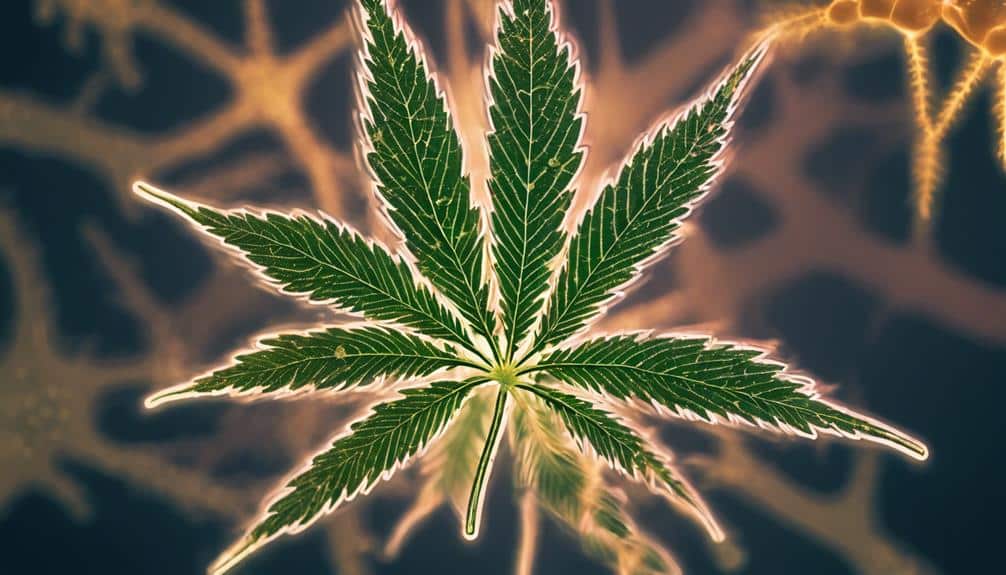Just as the sunrise heralds a new day, medical marijuana introduces a fresh perspective on advanced pain management in Delaware. You are part of a shift, witnessing the transformation of this once stigmatized plant into a respected tool within the medical community, particularly for managing chronic pain. This change could potentially sideline traditional opioids, offering a less addictive alternative. But how does it work? What’s the science behind it and what impact does it have on patients’ lives? Let’s explore this intriguing terrain together.
Table of Contents
The Pain Management Landscape in Delaware

Despite being a small state, Delaware’s approach to pain management—especially through the use of medical marijuana—is both progressive and comprehensive. This underscores its commitment to improving the quality of life for those suffering from chronic pain. It is noteworthy that the state has made significant strides in addressing Pain Management Challenges and exploring Alternative Treatment Methods.
The complexities and hurdles often associated with chronic pain treatment are not unfamiliar to Delaware’s pain management landscape. These challenges are multifaceted, ranging from patients’ physical distress to their psychological toll and its impact on their families. The burden on healthcare providers who strive to provide effective treatment while minimizing potential substance abuse should also be acknowledged.
In response, Delaware has turned towards innovative alternative treatment methods which include not only medical marijuana but also cognitive-behavioral therapy, physical therapy, and acupuncture among others. Clearly, the state’s approach is holistic; focusing not just on alleviating physical pain but also addressing the emotional and mental well-being of its citizens.
Delaware’s progressive stance serves as a beacon of hope for other states grappling with similar issues, demonstrating that patient-focused, comprehensive pain management is achievable.
Medical Marijuana: A Revolutionary Alternative
Diving into the realm of medical marijuana, you’ll discover it’s a revolutionary alternative that’s reshaping the face of pain management in Delaware. This shift springs from the state’s approach to cannabis cultivation which emphasizes quality control and consistency of products, ensuring patients receive the most effective therapeutic dosages.
But it’s not just about growing cannabis. Delaware’s meticulous cultivation process involves selecting specific strains known for their pain-relieving properties. Moreover, cultivators pay close attention to each stage of the plant’s lifecycle as each phase can influence the potency of the final product.
Therapeutic dosages are tailored to individual needs. Healthcare providers work closely with patients adjusting dosages based on patients’ responses and side effects. In doing so, they strike a balance between alleviating pain and minimizing unwanted side effects.
In essence, medical marijuana presents an innovative avenue in pain management. It’s not just about providing relief; it’s about enhancing patients’ quality of life. As you serve others in Delaware’s health sector understanding the role of medical marijuana in pain management is essential. Its integration isn’t merely a trend but a testament to Delaware’s commitment to advanced pain management.
The Science Behind Marijuana and Pain

So, how exactly does marijuana aid in pain management? Let’s delve into the science behind it. Its effectiveness lies in its interaction with the human body’s Endocannabinoid System (ECS). The ECS is a complex cell-signaling system that plays a key role in maintaining your body’s homeostasis. It’s involved in various physiological processes including appetite, mood, sleep, and importantly for our topic, pain sensation.
Marijuana contains compounds called cannabinoids that interact with the cannabinoid receptors in the ECS. There are two primary cannabinoid receptors: CB1 and CB2. CB1 receptors are mostly found in the brain and central nervous system while CB2 receptors are more common in peripheral organs, especially cells related to the immune system.
When you consume marijuana, cannabinoids bind to these receptors—specifically the CB1 receptor. This binding action reduces neurotransmitter release which subsequently reduces pain signals. So you see, it’s not just about dulling the pain—it’s about altering your body’s perception of that pain.
The use of medical marijuana in pain management is an innovative approach leveraging our body’s own systems for more natural relief. It’s part of Delaware’s shift towards personalized patient-centered care.
Patient Experiences With Medical Marijuana
As we explore medical marijuana for pain management it’s crucial to consider firsthand experiences of patients who’ve embarked on this unconventional treatment journey. Patient testimonials highlight a common theme: dosage control is key.
Many patients report that medical marijuana provides unparalleled relief allowing them to reclaim their lives from chronic pain’s grip. Yet reaching this level of relief often involves trial and error emphasizing individualized dosage control as each patient reacts differently to medical marijuana; some may need smaller doses while others may require larger amounts for effective pain management.
Patient testimonials also underscore the importance of open communication with healthcare providers. Physicians knowledgeable about medical marijuana can provide invaluable guidance helping patients determine the optimal dosage for their unique needs. They can also monitor patients’ responses to treatment making necessary adjustments along the way.
Legal Framework and Access in Delaware

Navigating Delaware’s legal landscape for medical marijuana may seem daunting but understanding the regulations can facilitate easier access to this unconventional pain management option. The regulatory implications of cannabis cultivation in Delaware are significant as they dictate who can grow, distribute, and use medical cannabis.
To legally use medical marijuana in Delaware you must have a qualifying medical condition such as chronic pain. You’ll need certification from a physician and must apply to the Delaware Division of Public Health for a registry identification card. Strict cultivation regulations exist; only licensed producers can grow cannabis while personal cultivation is not allowed ensuring product safety and standardization.
Accessing medical marijuana isn’t just about legality it’s also about availability. Currently, there are only a few state-licensed compassion centers or dispensaries across Delaware. These centers are the only legal places to purchase medical marijuana.
Understanding these regulations is crucial for both patients seeking pain relief and those who want to support them. While the legal framework may feel restrictive it’s designed to ensure safety and efficacy. With knowledge and compliance, you can confidently navigate this landscape.
Future Prospects of Medical Marijuana
Looking ahead, the future of medical marijuana in Delaware is ripe with promise offering an exciting avenue for advanced pain management and potentially transforming the healthcare landscape. With ongoing research and growing acceptance, potential risks associated with medical marijuana are being meticulously managed and mitigated.
Regulation and clinical studies ensure that patients receive safe effective treatment options mitigating potential risks like dependency and adverse psychological effects. While this careful examination and control is essential it’s equally vital to consider the economic impact.
As the medical marijuana industry in Delaware expands it’s also contributing to economic growth. From job creation in cultivation and dispensaries to increased tax revenue, the benefits are palpable. It’s an industry that’s not just serving patients but also invigorating the economy creating a symbiotic relationship that benefits all parties.
However, it’s not a one-size-fits-all solution. Continual assessment of risks and benefits is crucial to strike a balance between patient health and economic vitality. After all, at its core is people’s wellness. With careful management and foresight, the future of medical marijuana in Delaware looks promising indeed.
Conclusion
As Delaware’s medical landscape evolves, medical marijuana symbolizes a beacon of hope for those battling chronic pain. Its potential to transform pain management while reducing opioid reliance represents a promising pathway forward. The key lies in unlocking the science behind its interaction with our bodies and leveraging that knowledge for personalized treatment plans. With a supportive legal framework and patient-focused approach, the future of pain management in Delaware isn’t only green—it’s groundbreaking.
We invite you to visit us at Cannabis Docs of Delaware to learn more about how medical marijuana can transform pain management strategies. We’re here to help you understand this new promising pathway towards relief so why not give us a call? We’re more than happy to answer any questions, address your concerns, and guide you through this groundbreaking journey towards better health. Our friendly knowledgeable staff are always ready to assist. We look forward to welcoming you soon!

